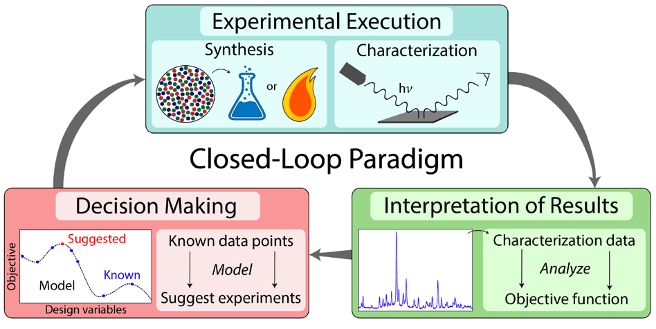
Scientific Achievement
We present an overview of recent progress in the design of self-driving laboratories, including robotics to automate materials synthesis and characterization, in conjunction with artificial intelligence to interpret experimental outcomes and propose new experimental procedures.
Significance and Impact
By outlining past successes, current limitations, and future directions in the field of autonomous research for materials science, our work facilitates the development of experimental platforms enabling automated materials synthesis and design.
Research Details
- Automated syntheses using solution-based routes, solid-state reactions, and thin film deposition are discussed.
- We highlight the integration of materials characterization with machine learning to interpret experimental results.
- A detailed review of optimization algorithms is presented. Their strengths and weaknesses are analyzed with respect to decision making in experimental workflows.

